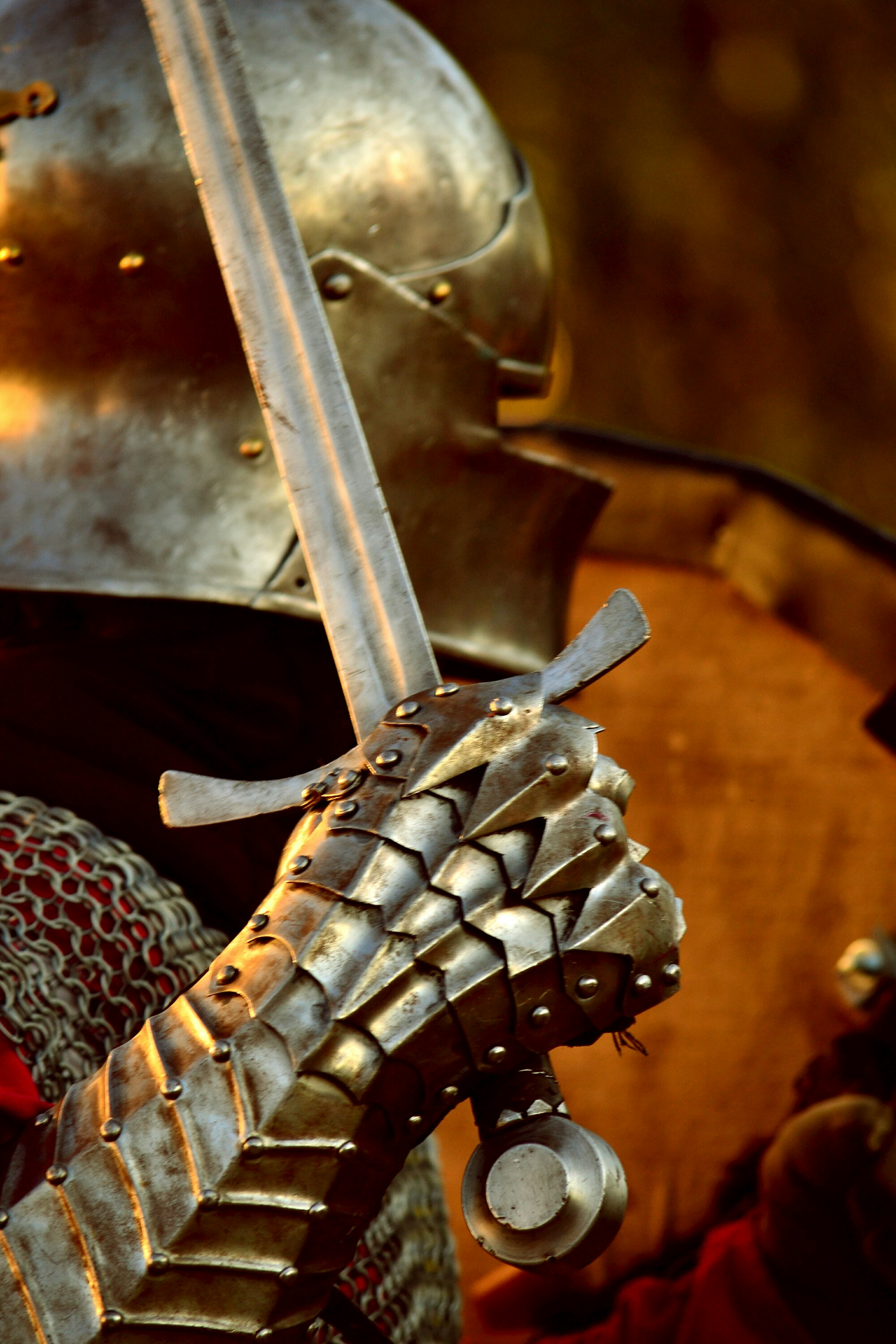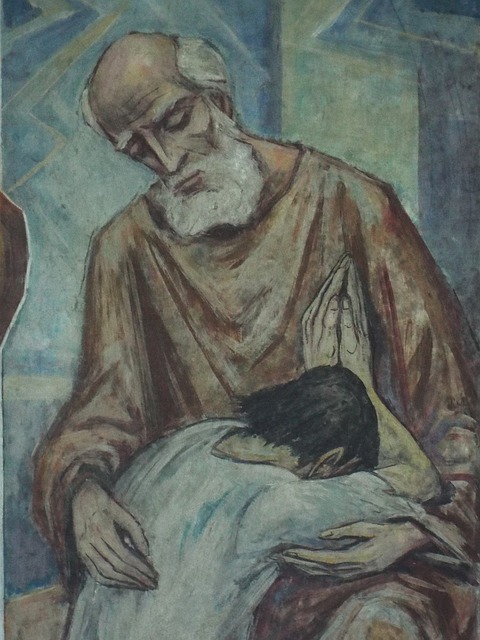
5 I am reminded of your sincere faith, a faith that dwelt first in your grandmother Lois and your mother Eunice and now, I am sure, dwells in you as well. – 2 Timothy 1:5
Sincere Faith
The Apostle Paul once referred to Satan as the “god of this world” (2 Cor. 4:4). Satan, the father of lies, has spawned a worldview that is leading many people to Hell. According to Paul, Satan has blinded the unbelieving so that they can not see the light of the Gospel of the glory of Christ. Having successfully veiled the Gospel from those who are perishing, he has been embraced by the them as their god.
As Paul writes to Timothy, his spiritual son (1 Timothy 1:2), he commends him for his faith. A faith that Paul says is sincere. In Paul’s estimation Timothy’s faith was unfeigned and untainted with hypocrisy. It was a faith that could withstand testing. It was a faith that flowed from the wellspring of a regenerated heart.
Although Paul referred to Timothy as his spiritual son, his sincere faith actually came from two Godly women. Women who did not embrace the god of this world but faithfully embraced the Gospel of the glory of Christ.
Believing Mothers
Today’s text is the only portion of Scripture that mentions the names of Timothy’s grandmother Lois and mother Eunice. Two Jewish ladies who embraced the Christian faith. All we are told about Timothy’s biological father is that he was a Greek (Acts 16:1). In contrast to his wife, Scriptures do not tell us that Timothy’s father believed the Gospel.
Being raised in a home with the guidance of a Jewish grandmother and mother who embraced Christianity and a Greek father who did not must have presented certain challenges. I suspect young Timothy loved each of his parents as well as his grandmother, but how did he reconcile the differences in their teachings and lifestyles?
Thankfully, Lois and Eunice used the Scriptures to pierce Satan’s veil.
14 But as for you, continue in what you have learned and have firmly believed, knowing from whom you learned it 15 and how from childhood you have been acquainted with the sacred writings, which are able to make you wise for salvation through faith in Christ Jesus. – 2 Timothy 3:14-15
I suspect that a feigned faith cannot be passed down since it would most likely produce rebellion. But how comforting to know that God’s profitable Word, when used for training, yields a sincere faith (2 Timothy 3:16). And how much more powerful is the training when it is bathed in a mother’s prayers?
History Lessons
People like to remind us that “behind every great man is a great woman”. Certainly, when we look at the history of the Christian church we will see that behind many of its great men were mothers who were faithful prayer warriors.
When we think of Augustine, we think of him as a Church “Father”, but how different things might have been if not for his mother Monica. As a teenager, Augustine not only was unsaved, but he lived a life of open rebellion. He not only fulfilled his lusts, but in time he also become involved with a heretical religious group (Manichaeism). While Augustine’s father was battling his own demons, his mother was fervently praying for his salvation.
As Augustine pursued his pleasures, he ran from the influence of his mother. Yet, regardless of how far he ran, he could not outrun Monica’s prayers. And she was committed to wrestling with God until Augustine was saved.
Eventually, Monica had a dream that Augustine would be saved. And years later, he was. By the grace of God, Monica was allowed to live to see him baptized, soon after which she was taken home. Content.
History is replete with many such accounts. The biographies of men such as John Newton, Hudson Taylor, Charles Spurgeon, John and Charles Wesley and others give powerful testimonies of the way their lives were shaped because of the influence of their Godly mothers. Mothers who were selflessly devoted to praying for the souls of their children.
Love Lessons
How powerful is love? What is more powerful than the perfect love of God? Heavenly love sent Jesus to earth and Cavalry. Sincere love for others is the fulfillment of the Law (Romans 13:8). True love never ends (1 Cor. 13:8).
The Bible certainly has a lot to say about love. Unfortunately the “god” of this world likes to distort our perception of Biblical love. But when I compare scriptures with life’s experiences I have to wonder: This side of heaven is there a better picture of God’s love for us than a mother’s love for her children?
When God wanted to illustrate His love for the Israelites, He posed this question.
15 “Can a woman forget her nursing child, that she should have no compassion on the son of her womb? – Isaiah 49:15
God understands that humanity recognizes the tender love of a mother for her children. A love we must never take for granted.
No Quit
Too often we see children dismiss the teachings of their mothers. We often see disrespect manifested in facial expressions such as rolled eyes or condescending verbal responses. Like Augustine, children may disregard the admonishments of their mothers, but escaping the reach of their prayers is another matter.
Once, when Jesus tried to get away from the crowds to relax with His disciples, He was barraged by the requests of a mother. A mother whose child was a victim of one of Satan’s demons. Her mother’s heart could not bear to see her child suffering.
This woman was Greek, and not Jewish, but a mother’s love for her children is part of her nature irrespective of nationality. Because of her faith, Jesus eventually granted the mother’s request and healed her daughter (Mark 7:24-30).
Similarly, Jesus taught the importance of persisting in prayer when He told the parable of the widow and the judge in Luke chapter 18. Although the judge in the parable did not fear God or respect man, he could not endure the persistent requests of the widow and eventually gave her justice. Always pray and never give up!
Rewards
I am thankful for the special God given love of a mother for her children. I am convinced that we will never know the extent to which the world has been influenced by Godly mothers until we reach Heaven. And I am confident of one thing, Hell has been denied a lot of citizens because of the faithful, persistent prayers of believing mothers. Mothers like Lois, Eunice, Monica, Elizabeth Newton, Amelia Taylor, Eliza Spurgeon, and Susanna Wesley.
Keep the faith. The world may not know your name, but God remembers your prayers.
I am not trying to diminish the sovereignty of God, but He does use humans to carry out His will. Accordingly, I am convinced beyond the shadow of a doubt He uses the faithful prayers of His children in bringing lost sheep into the fold. I am even more convinced, that the most urgent prayers for the lost fall from the lips of mothers. Lips that pray for their children as Hannah prayed for a son (1 Samuel 1:9-11).
Never give up on your children. Never stop pleading with God. Our loving Heavenly Father has a long history of granting the requests of loving Godly mothers. It was His perfect plan to plant within mothers such a special love in the first place. How many Saints in Heaven will testify that the father of lies was thwarted by a mother’s prayers?
Spurgeon Quotes
“It was the custom on Sunday evenings, while we were yet little children, for her to stay at home with us, and then we sat round the table, and read verse by verse, and she explained the Scripture to us. After that was done, then came the time of pleading; there was a little piece of Alleine’s Alarm, or of Baxter’s Call to the Unconverted, and this was read with pointed observations made to each of us as we sat round the table; and the question was asked, how long it would be before we would think about our state, how long before we would seek the Lord. Then came a mother’s prayer, and some of the words of that prayer we shall never forget, even when our hair is grey.” Charles Spurgeon
“Now, Lord, if my children go on in their sins, it will not be from ignorance that they perish, and my soul must bear a swift witness against them at the day of judgment if they lay not hold of Christ.” Eliza Spurgeon
“Never could it be possible for any man to estimate what he owes to a godly mother. Certainly I have not the powers of speech with which to set forth my valuation of the choice blessing which the Lord bestowed on me in making me the son of one who prayed for me, and prayed with me. How can I ever forget her tearful eye when she warned me to escape from the wrath to come?… How can I ever forget when she bowed her knee, and with her arms about my neck, prayed, ‘Oh, that my son might live before Thee!’” – Charles Spurgeon
Taylor Quote
“My beloved, now sainted mother, had come over to Liverpool to see me off. Never shall I forget that day, nor how she went with me into the cabin that was to be my home for nearly six long months. With a mother’s loving hand she smoothed the little bed. She sat by my side and joined in the last hymn we should sing together before parting. We knelt down and she prayed—the last mother’s prayer I was to hear before leaving for China. Then notice was given that we must separate, and we had to say good-bye, never expecting to meet on earth again.
For my sake she restrained her feelings as much as possible. We parted, and she went ashore giving me her blessing. I stood alone on deck, and she followed the ship as we moved toward the dockgates. As we passed through the gates and the separation really commenced, never shall I forget the cry of anguish wrung from that mother’s heart. It went through me like a knife. I never knew so fully, until then, what “God so loved the world” meant. And I am quite sure my precious mother learned more of the love of God for the perishing in that one hour than in all her life before.” Hudson Taylor
Augustine Quote
“You sent down your help from above and rescued my soul from the depths of this darkness because my mother, your faithful servant, wept to you for me, shedding more tears for my spiritual death than other mothers shed for the bodily death of a son.” Augustine

 Open Arms
Open Arms